Social Science Dictionary with a Durkheim bias
Words to describe social reality
See also mind words other wordsSocial Science History
Society and Science History TimeLine
Durkheim index: "Consider social facts as things"

people
Index
A B C D E F G H I J K L M N O P Q R S T U V W X Y Z
Able
Absolute
Academia
Accommodation
Achievement
Acting
Action
Action Frame of
Reference
action research
Actor
Adaptation
Advertise
advocate
and advocacy.
aetiology
Affectivity
Age
Agency
Agent
Agriculture
algorithm
Alienation
Altruism
Anarchy
Animal
Ancient Regime
Anomie and
Anomy
Anthro-
Anthropology
anti-psychiatry
Anxiety
a priori
Argumentation
Art
Articulate
Ascribe
Ascription
Assimilation
association of ideas
astrology
atavism
Auburn model
Authority
Authoritarian
Autobiography
Autoethnography
Autonomic nervous system
Atomism
Autonomy
Autocrat
average
Average man
Barbarism
Base
Behaviour
Beast
behavourism
Belong
Bell curve
Big data
Binary Opposition
Bio-
Biography
Biology
Biological identity
Biopower
Biological
Organism
Birth
Bisexual
Blemished
Body
Body Image
Body
Language
Body, mind and society readings
Bond
Borough
Bourgeoisie
Brain
Branding
Brute
Brutalisation
Bully
Bureaucracy
Business
Capital
Capitalism
Carceral
Care
Carer
Career
case studies
Cash nexus
Caste
categorical
imperatives
Celibate
Celibate vocation
Censor
census
Central Nervous System
Centred structure
Ceremony
Change
Character
charisma
chart
Chemistry
Childhood
Child abuse
Chromosomes
Church
Circumstances
Citizen
City
civil
inattention
Civil law.
Civilisation
Clan
Class
Classical
Classical
criminology
Classical
economists
Classification
Clothes
code
Cohesion
Collaborate
Collaboration
Collective Conscience
Collective Mind
Collectivity orientation
Collective Representations
combination
Commerce
Commodification
Commodity
Common Conscience
Common Sense
common
law
Compassion
comprehend
Communicate
Communication
Communicative Action
Communism
Community
Community of
women
Community Disintegration Theory
Competition
Complexity theory
computing
concept - conceive
Conception
conception
Conflict
Conjugal society
Conjuncture
Consanguine
Consequences
Conservative
Conscience
Consciousness
Constitutional
Constraint
Constructed
Order
Construction
constructivist structuralism
Consumer
Consumer society
Consumers voice
Consumption
Content Analysis
Context
Contextualise
Continuity
Contingent
Contract
Contradiction
Control
control group
Converge
Convergence of
theories
Convention
conversation in
gestures
Cooperate
Cooperation
Cooperativism
Core Gender
identity
Corporate
Corporate psychopath
Corporatism
correlation
Countryside
Covenant
Craft
Crime
Crime and insanity
Criminal law.
Criminal career
Criminology
Crisis
Crises since 1945
Critical
Critical theory
critical thinking
Culte du moi
Cultural capital
Cultural Constructs
Cultural Goals
Cultural
heritage
Cultural Ideals
Culture
Custom
Cybernetics
Dasein
data
Database
Data sets
Decentred structure
decode
Deconstruct
defective
define
Degenerate
Degeneration Theory
Degradation
Dementia
Democracy
Demography
Demonise
Dependency
Depression
describe
Descriptive
Desire
Despotic
Detached
Determine
Determinism
Development
Deviance
Deviation -
statistical
Dialectic - dialectical
Dialogue
dialogue
Diaspora
Dictator
Dictatorship of the proletariate
Differentiation
Diffuseness
digital
Digital age
Dimension
Disabled
Discontinuity
Discriminate
Discourse
Disease
Disintegration Theory
Discipline
Disownment
Disorder
Disposition
Dispositif
Dispositifs techniques
Distinction
Distress
Diversity
Divine Right of Kings
Division of Labour
DNA
documentary research
dogma and dogmatism
Domestic
Domestic labour
Domestic
violence
Domination
Drug
Dwell - dwelling
Dynamics
Dysfunctional
Ecology
Economics
Economic capital
Economists
the Economy
Ecosystem
Education
Effects
ego (Freud)
Egoism
Embodied Self
Embodiment
Emigration
Emotion
empirical
empiricists and
empiricism
Employment
empowerment
Engineer
Enlightenment
Environment
Epigenetics
Episteme
epistemology
Equality
Equilibrium
essence
Essentialism
Estrangement
Ethics
Ethnicity
Ethnicity and race
Ethnic indicators
Ethnic statistics
Ethno-
Ethnography
Ethnology
Ethnomethodology
etiology
Eugenics
Evangelical Revival
(British)
Everyday life
Evolution
Exchange
existence
Existentialism
existentialism
Exclude
Exnomination
Experience
experiments
Expositor
Extended family
External
Extrude
Facts
fairy tales
Family
Family statistics
Family today
Fan
Fandom
fascist
Father
Felicific calculus
Fear
Feminism
Fetish
Feudalism
Field
field work
figure
figurational
sociology
Finkelstein on disability
Fisher's squares
Fisher's P values
focus
focus
group
Folklore
Folkways
Fordism
formulas
Force
Form
Frankfurt school
Freedom
Friend
Function
Functional
Functionalism
Game
Garden
Gemeinschaft
Gen-
Gender
Gender identity
Gendering
Gender nonconforming
Genes
general will
Generation (birth)
Generation
(construction)
Genetics
Genitals
Genome
Genotype
Gens
Geo-
Geography
Geology
Geometry
Gesellschaft
Gestalt
Gift
Globalisation
Goal
Attainment
God
Governance
Government
Government rule
graph
grounded theory
Group
Habit
Habitualisation
Habitus
Happy
hardware
hardware times
Harmony
Hegemony
Health
Heart
Hermeneutics
Hereditary
Heritage
Herrschaft
Hetero
Heteronomy
Heteronormative
Heterosexual
Heterosexual matrix
Hey You!
Hierarchy
Hierarchy and power
High
History
Historic Social Structures
historical research
Historical materialism
Hoax theory
Holism
Holy
Home
Homicide
Homo
Homosexual
Horde
Horizontal segregation
House
Household
Houshold
Economy
Human capital
Human Ecology
Humanism
Humanity
Humanity nation family
Human Rights
hysteria
hypothesis
icon
id (Freud)
ideal
types
ideas
Idealist
Identity
Identity politics
Ideology
Imagination, society and science
Image
Immigration
impairment.
Imperative
Incest
Incest taboo
indicators
Individual
Individual and
society
Individualisation
Individualism
Industrial
Industrial
revolution
Industrial society
Inequality
Infantilise
Information
Information age
Information Technology
Insane
Inscribe
Institute
Institution
institutional
institutional racism
institutionalisation
Institutions
and
Mind
Integration
Intellect
Intellectual
Intelligence
Inter...
Interaction
Internal
Internalise
Internet
Interpellate
interpret - interpretation
Interpretive sociology
Intervention
Intra...
Involvement
isomorphic
structures
Kinship
Knowledge
Knowledge types
Label
Labour
Labour theory of
value
Language
Latency
Latent
Latent class
analysis
Late modern
latin
square
Law
Learning
Legitimate
Leisure
Lexicology
Liberal
Liberalism
libido (Freud)
library
Lifeline
Linguistics
Lifeworld
Liminal
Liquid modernity
logic
Logical Positivism
Love
Macht
Mad
Madness
Mad studies
Magic
Magistrate
Man, Mankind,
Humanity
Management
mana
manga
Marginal
Utility
Marginalise
Market
Marketing
Market
Marketing
Marriage
Marxism
Mass Media
Mass Society
Material
Materialist
Mathematics
Matriarchal
Matrix
McCarthyism
Meaning
mechanical
solidarity
mechanical
solidarity
Media
media research
Medical model
Medieval
Meetings
Memory
Men's community
Mental
Mental disorder
Mental distress
Mental health
Mental illness
mental patient
Meta-
Metalanguage
metaphysics
metatheory
Methodological
individualism
Methodology
Microcosm
Migration
Mind
Mind and brain
mixed methods
Mode of Production
models
Modern
Modernity
Modern State
Modesty
Monarch
moral
Moral career
Moral insanity
moral
panic
Moral rules
Morals
Moral
Sciences
moral
statistics
Mores
Mortification
Mother
Motivation
Movement
Movement intellectuals
museum
Mutual
Mutuality
Myth
Narrative
Nation
Natural
Natural World
Natural law
Natural science
Nature
Nazi (National Socialist)
neo-classical criminology
neo-liberal
Nervous System
Networks
Network society
Neuroscience
Neurosis
Neurotic
Nexus
Nodes
Normal
Normal curve
Normal person
Norms
Nourish
Nuclear family
Null hypothesis
Nurture
Obedience
Objective
Objectivism
Obese
Obligation
observation
obsession
Occupation
Occupational career
Occupational
segregation
open access
open
learning
operationalise
Oppression
Order
organic
solidarity
organic
solidarity
Organisation
Organised society
Organism
Orientation
Other
Outsider
Overdetermination (Althuser)
Paedophilia
Pan-
Panopticon
Paradigm
Paradigm shift
Parallel
Parallelism
Participate
participant observation
Particularism
Parts of self
Parts of society
Passage
passion
Paternalism
Path
patience
patient
Patient to person
Patriarchal
Patriarchy
Patrimonial
Pattern
Pattern
Maintenance
Pattern
Variables
Pederasty
Peer
Peer Assisted
Learning
Penal
Penal Code
Penality
Penalty
Performance
Performativity
permutation
person
Person or less than
Person to patient
Personal branding
Personality
Perspective
Phenomenological
Phenotype
Philadelphia system
Philosophy
photo
Phrenology
Physics
Picturing the brain
Picturing the mind
Picturing society
plastic
Pluralism
Poetry
Political and
Politics
Political
Economy
Popular culture
population (statistics)
Population
Position
Positive law
Positive Criminology
Positivism
post-
Post industrial
Postmodern
Postmodernism
Postmodernists
Postnatal
depression
Poverty
Power
Power: gun and ideas
Power:
Hierarchical
Power:
Pluralist
Practice
Pragmatics
Pragmatism
Praxis
Precedent
Pregnancy
Prejudice
Prerogative
Prescription
Present
Presentation
Prices
Primary Group
primary research
Primary
socialisation
Primitive
Prison
prisoner's dilemma
Private
probability
Process
Processor
Production
Profane
Progress
Proletariat
Property
psychiatry
psychoanalysis
Psychology
Psychological
Psychopath
Psycho Politics
Psychosis
Psychotic
Psychotropic
Public
Public Discourse
Public
Opinion
Public
Sphere
Punishment
qualitative data
quantitative data
questionnaires
Race
Racial
prejudice
Racial segregation
Racialism
Racism
random
Rate
rationalists and rationalism
Real
Real and
simulated
Realism
Rearticulate
reason
Reciprocal Development
Recognise
Recontextualise
recorded sound
Recovery
reductionist
(Durkheimian swearing)
reflection
Reflex arc
Reflexive
Reflexive autocritique
Reflexive modernisation
Reflexive modernity
Regress
regression analysis
regression to the mean
Regulate
reification
(Weberian swearing)
Relativism
reliable
reliable indicators
Religion
Represent
Reproduction
research
Resistance habitus
Response
Revolution
Rhythm
Risk
Risk society
Rite
Rite of Passage
Ritual
Robotics
Role
Rothamsted squares
Rules
Rural
Sacred
Sacrifice
Sad
sample
Savagery
Schema
Scheme
Schizophrenia
School
Science
Scientific socialism
scientology
scouts
Secondary research
Secondary
socialisation
second wave
Segregation
Self
self-dependence.
self-determination.
self development
self-help
Self knowledge
Self Orientation
Semiology
semiology
semiotics
Sentiments
Separate system
sequential
Service recipient
Service user
Settlement
Sex
Sexuality
Sexual
orientation
Sex with
children
Shame
Sharia
Shekhinah
Sick role
Side effects
Sign
significance
Signification
Signified
Signifier
Signify
Silent system
Simulated
skills
Slavery
snowball sampling
Social
Social Action
Social approach
to health
Social Behaviourism
Social capital
Social Character
Social Construction
Social
Contract
Social Darwinism
Social Dynamics
Social facts
Socialism
Social media
Social model
Social model of disability
Social model of distress
Social model of health
Social Movement
Social Network
Social Order
Social
psychology
Social
Science
Social Space
Social Statics
social
statistics
Social Structure
Social (sub) Structures
Social Structures in history
Social
System
Social System Needs
Social System Parts
Socialisation
Socialism
Society
Society as an active force
Society as body - organism and/or system
Society's Parts
Sociology
software
software times
Solidarity
Solid modernity
Soul
Sovereign
Space
Spacetime
Spatial
Specificity
Speech
Spontaneous
Order
spread
standard deviation
standpoint theory
State
State of
Nature
Statics
Statistical
deviation
statistical lies
statistically significant
statistics
Status
Stereotype
Stigma
Stimulus response
Stop thief!
Strain
Strata
Stratification
Stress
Structuralism
structuralist constructivism
Structure
structural functionalists
Subconscious
Subculture
Subject
Subjection
Subjective
sub-systems of human action
Successful psychopaths
Suicide
super-ego (Freud)
Supernatural
Superstructure
surveillance
Survivals
Survivors
Survivors movement
Survivor's history
Survivor research
Symbol
symbolic annihilation
Symbolic capital
symbolic
interaction
symbolic violence
System
Systems theory
table
Taboo
Tacit
Technologies
Temporal
Terror
Terrorism
Terrorist
Textiles
Thatcherism
Them and us
Theology
Theosophy
theory
therapeutic comunity
third
wave
Time
time
time series
tissue
Token
Tokenism
topology
total
institution
totalitarian
Torture
Totem
Trade
Tradition
Traditional society
Trajectory
Transgender
trauma
Tree
triangulation
Tribe
Truth
Type
Typification
Tyranny
Unconscious
Underlife
Unanticipated consequences
understand
Universalism
University
Urban
USA
Sociology
Utilitarianism
valid
valid indicators
Value
variable
Variation
Verstehen
Vertical segregation
Very modern
Victorian
Village
Violence
Virtual
Virtual
Community
Visual
Vocation
Voice
Voices
Wage
War
Wealth
Web
Wellbeing
Well of
loneliness
Weltanschauung
White Collar Crime
wireless
Woman
Women's community
Women's Movement
Work
Work based learning
World-view
world wide
web
worship
Worthless
Zeitgeist
| If you have not found it here: click the spider to try somewhere else: |
|
|
|
Society Society is the most general term in modern English for the body of institutions and relationships within which a relatively large group of people live. (Williams, R. 1976)
|
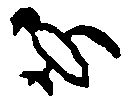
Society may not be visible, but its symbols are. Click on the fishing bird to know more. |
Is society real?
To some people, common sense says society is not real
.
Margaret Thatcher argued that it
does not exist. It could, however exist but
not be real in the sense that our bodies are real.
Some theorists treat the individual as real and society is
constructed by individuals. Such theories have been called
social atomism or methodolological individualism,
Following
Weber, structural functionalists argue that society comes into
being because of the
orientation of individuals. Robert Merton says:
"every aggregate of individuals who are in continuous contact
form a
society" ...
"individuals must adhere materially, but it is
still necessary
that there be moral links between them."
(Durkheim, E. 1893/1933
p.276)
Individual means something that cannot be divided: a unit complete in
itself. In the above quotations it refers to single human beings, which is
what we usually mean when we say "an individual". In this sense,
sociologists later than Durkheim have spoken of
"the self" in relation to
society. One can, of course, speak of an individual society.
"
It is ... only because behaviour is typically orientated toward the
basic values of the society that we may speak of a human aggregate as
comprising a society. (Merton, R. 1957, p. 141)"
Social holism is the opposite approach to social atomism. It means treating society as a whole that is more than adding up its parts, more than the construction of individuals. This was Durkheim's approach.
For Durkheim, society is originally everything, the individual
nothing: (See the Durkheim
index on society)
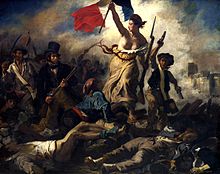
|
We speak of society, or parts of society, as being active when we refer to
our society as
nurturing us.
Eugène Delacroix's 1830 painting symbolises France as liberty leading the people bare breasted, possibly symbolising that she breast feeds the people.
|
Society's parts
Filmer
and
Locke
made different analyses of
family
and
politics
as parts of
society. Filmer argued that
political power
derives from family power, but Locke said that we
should not confuse:
paternal or parental power with
political power, or either of
them with
with
despotical power.
Hegel suggested that society
(the whole) has
three corners: the
State
(
politics),
Civil Society
(the
economy) and
Private
Society
(the
family).
One of the
activities of
social theorists has been to theorise about how the parts of
society
inter-relate.
USA
sociologists,
like Talcott
Parsons
tend to treat society as created by individuals, rather than a
reality in
itself. However, Parsons argues that individual actions are directed to
other people and that, in the inter-action of individuals, a
social system emerges. Society, therefore, emerges as a reality.
Robert Merton belongs to the same school of thought
(Structural
Functionalism)
as Parsons.
Parsons uses four interrelated systems
("sub-systems of human action")
to analyse this
human
reality: the
biological system, the
personality
system, the
cultural
system
and the
social system
Parsons identifies four especially important empirical "clusterings"
of social
structure: 1)
Kinship,
sex and
socialisation
[family] -
2)
Stratification
of occupational roles
[class] - 3)
Power, force
and
territory [
State,
politics] - 4)
Religion and similar systems
of orientation and
adjustment. (See
Parsons, T. 1951 page 152).
Parsons says
social systems
have four
needs which correspond to parts of the social
structure.
Three of these fit in with
Hegel's
division:
adaptation (relating to
the economy),
goal attainment (relating to
politics) and
latency (relating to
the family). Parsons's
fourth need is
integration, which he relates to
religion.
Four sub-systems of social action
See
Parsons
Social systems have a
structure - which can be represented as
a diagram of their parts. But the system is
dynamic, it moves. It is also comparable to a
living organism in that it has needs.
Four empirical structural clusters
Four needs
| Playing the creativity ball game: Starting with society - individual - government - we went through solidarity - social - suicide - peer-pressure - drugs - prison - to social glue - division of labour - social view (looking at things Weber's way) - conformity - state of nature - naturist - nudist - rebel - conformity - deviance - religion - anomie - conflict theory - disagreement - anarchy. We discussed the relationship of anarchy to the theories of Hobbes, Locke, Weber and Durkheim. We asked what would give an anarchist society solidarity and whether the state increased or decreased individual freedom. |
Sociology: The science of society. See Durkheim and Weber's Contrasting Imaginations: Who is the Sociologist?. The original French word (Sociologie) was created by Comte in 1839 and there is a sense in which sociology was invented in France. .
The
Emerson timeline (external link -
archive) puts the
term in context. The
French Wikipedia contains (or contained) the disputed claim the
the term dates back to 1788/1789. This appears to be incorrect.
The similarly constructed word "Psychology", for the science of mind, had existed in English since the late 17th century.
External links to Wikipedia articles on:
on Sociology on Anthropology
on Sociology on Anthropology
At one time of consultation, Wikipedia said "Sociology is the study of social rules and processes that bind and separate people not only as individuals, but as members of associations, groups, and institutions." Then adding as a "typical textbook definition" the "study of the social lives of humans, groups and societies". Durkheim argues that sociology is the scientific study of society: Of the real social forces that contrain our individual actions (social facts).
Thinking Sociologically
"Thinking sociologically" is an approach that starts from meaningful
individual perceptions and actions rather than the reality of society
(which may be disputed). It is a Weberian as distinct from a
Durkheimian
approach. Bauman and May write "individual actors come into the view of
sociological study in terms of being members or partners in a network of
interdependence... how do the types of social relations and societies that
we inhabit relate to how we see each other, ourselves and our knowledge,
actions and their consequences?... to think sociologically is to make
sense of the human condition via an analysis of the manifold web of
human interdependency..
(Bauman, Z. and May, T. 2000 pages 5 and 9)
In the United States of America, beliefs about
society
tend to use
State of
Nature
theory as axioms. USA
Sociology
explores the idea that
individuals construct society, without
always
recognising that to do so is a product of particular
societies, at
particular times.
A
"general statement" "intended to develop a unified conceptual
scheme for theory and research in the social sciences" was published by
nine USA social scientists in 1951. Theory was to be based on a "theory of
action" in which "the point of reference of all terms is the action of an
individual actor or collective of actors".
Social
Science is a broader concept than
sociology. It includes all the sciences with social content,
including psychology, politics, economics, human geography, anthropology,
etc. The term dates from the late nineteenth century. Older terms with a
similar meaning include sciences humaines (human sciences - a
French
term dating back to the 17th century) - sciences de l'homme
(sciences of man) - sciences morales et politiques (moral and
political sciences - See
1770 and
1795) -
moral sciences, a term
used by J.S. Mill in
1843 and by
Cambridge University in 1851
See
Porter and Ross 9.2003
"Moral
Statistics" is another term where "moral" may mean social rather
than ethical. In the term
"moral insanity", moral can mean behavioural
or emotional rather then to do with the intellect.
See also natural science
and social science
| Anthropology | 1841 - 1843 |
Anthropology means the scientific study of human beings. For a time in the 18th and 19th centuries it tended to mean the study of human physical characteristics, but has been extended to cultural and social characteristics. It is the science of humankind in the broadest sense. (See man).
Ethnology is a mid-nineteenth century term for the science of nations or races. The Ethnological Society, founded in London in 1843, became The Anthropological Society in 1863. In the United States, a New York based American Ethnological Society was started in 1842. A Bureau of Ethnology was established by an Act of Congress in 1879 and the Anthropological Society of Washington at the same time.
James Cowles Prichard wrote in his The Natural History of Man (1843, p.132) "The history of nations termed ethnology, must be mainly founded on the relations of their languages". The Etnografiske Museum opened in Copenhagan, Denmark in 1849.
Anthropology has tended to theorise about the evolution of human beings, physically and culturally and to take a cross cultural approach. There is no strict division between anthropology and sociology, they overlap.
Some well known studies of society that are based on anthropology are Engels' The Origin of the Family, Private Property and the State (1884), Durkheim's The Elementary Forms of Religious Life (1912), and Freud's Totem and Taboo (1913).
These are based on studies of pre-literate societies. In the twentieth century however, the scope of antthropoloy was extended to all societies. Robert Park wrote, in 1925
"Anthropology... has been mainly concerned... with the study of primitive peoples. But civilised man is quite as interesting... Urban life and culture are more varied, subtle, and complicated, but the fundamental motives are in both instances the same. The same patient methods of observation which anthropologists... have expended on the study of the life and manners of the North American Indian might be even more fruitfully employed in the investigation of the customs, beliefs, social practices, and general conceptions of life prevalent ... on the lower North Side in Chicago..."
anthropo comes from the Greek anthropos for human being.
ethno, from the Greek ethnos for nation, is used in combination for
nation, people or culture. So, by a strange convolution, one gets
ethnomethodology, in sociology, which is a method of theoretical
analysis of individuals constructing and maintaining the social order
(culture?) of
everyday situations - Like coping with the complex
negotiations of meaning involved in buying a newspaper from a newspaper
stall.
More straightforward: ethnography (writing about race) is used for the scientific description of nations, races or peoples, with their different customs. Utah State University has a collection of student ethnographies online from a field trip to Peru. In 2000 a joural to link anthropology and sociology was launched with the title Ethnography. See also ethnicity
Ethnography is, nowadays, more often used for studies of culture/s. See Wikipedia. See autoethnography
Anthropometry Measurement of the height and other dimensions of
human beings, especially at different ages, or in different races,
occupations, etc.
Anthropomorphic Shaped in human form
Social in the
social sciences, since the mid-19th century, relates
to the mutual relationships of human beings (as individuals or classes) and
is connected with the functions and structures necessary to membership of a
group or society. (Oxford English Dictionary)
Social: Relating to society. Relating to people in society. Relating to the
public as a whole. (Definition based on a
1900 Dictionary)
Social dimension
Erving Goffman (1961) writes of the
"social beginning of the patient's career" as distinct from the
psychological
beginning of ... mental illness.
The Social Dimensions of Scientific Knowledge
| Social System: | See society and society's parts - Parsons on society's parts |
The
Social System is one of Parsons' four
sub-systems of human action. The social system specialises
in the function
of
integration.
In a social system parts are arranged in a pattern of relationships that, together, makes the system.
See Talcott Parsons' 1942 definition
Talcott Parsons argues that each of us is an actor playing a role within a system of relationships. He analyses the real (concrete) system we are in into social system, cultural system and our own personality system. (Extracts)
" a social system consists in a plurality of individual actors interacting with each other in ..." [an environment]... whose relation to their situations, including each other, is defined and mediated in terms of a system of culturally structured and shared symbols." (Parsons, T. 1951 p.5)
Human relationships being made by means of symbols, links Parsons' system
theory to the theories of the
symbolic interactionists. Both also, use
role as a key concept. The two bodies of
thought are, arguably, complementary - With
structural
functionalism concentrating on analysing social structure, and
symbolic interactionism analysing everyday social interaction at social-
psychology level. See
the argument of C. Wright Miils that social science should be
the study of the intersection within social structure of personal
biography
(and everyday social interaction) and history.
Parsons argues that "Every social system is a functioning entity". It is
a system of interdependent structures and processes such that it tends to maintain a relative stability and distinctiveness of pattern and behaviour as an entity"
In some ways, its behaviour is analogous to an organism.
(
1954 Essays, p.143)
Social System Needs:
Talcott Parsons says that
societies (like all
systems and
organisms)
have needs which must be fulfilled if they are to survive.
- "...process in any social system is subject to four
independent
functional imperatives or "problems" which must be met
adequately if
equilibrium and/or continuing existence of the system is to be
maintained."
(Parsons and Smelser 1957 p.16)
Social system needs - functional needs - functional imperatives - all seem to refer to the same things: Things a system requires if it is to stay alive and thrive. These needs exist because of the system's relationship with its environment and because of the internal working of the system.
Parsons says that
all societies have four basic needs:
Every
social system must adapt - set goals - integrate -
and provide for its latent needs. The initials AGIL are often used
to help us recall these four needs.
A social model could be thought of as a
paradigm for
understanding that emphasises
social factors.
The European Social Model is used to describe the European experience of
simultaneously promoting sustainable economic growth and social cohesion
See social models of disability -
health -
distress
See analysis of
Society's parts by Parsons
|
|
Able -
disabled
Thomas Betterton wrote in the 17th century that "the hands are the most
habil" [able] "members of the body". The word able comes from a word
meaning "to hold".
Someone who is able to do something has the "skill, qualities, knowledge,
means, or opportunity to do it" (Plain English Dictionary)
Disable - disabled
To disable is to "make incapable of action or use". With respect to people
it is to "deprive of physical or mental
ability, especially through injury
or disease". (Oxford English Dictionary. Late 15th century origins)
Amelia Harris's definitions
Amelia Harris needed to create definitions that would enable the Department
of Health and Social Security to survey (count a sample) disabled people
for the first time. The definitions she used were:
Impairment: "a) lacking part of or all of a limb, or b) having a defective
limb, organ or mechanism of the body which stops or limits getting about,
working, or self-care".
Disablement: "the loss or reduction of functional ability".
Handicap: "the disadvantage or restriction of activity caused by permanent
disability".
The sample of 12,738 people interviewed, between October 1968 and February
1969, was selected on the basis of impairment. One of the objects of the
survey was to discover to what extent impairment led to handicap. On the
basis of the survey, it was estimated that
Finkelstein's social interpretation of disability
Impair: make worse, as in "medication impaired his judgment".
Impairment
Impairment may refer to a medical condition that leads to
disability
Physical impairment
Victor Finkelstein uses a
definition of (physical) impairment
which he takes from definitions used by
Amelia Harris of the Department of
Health and Social Security:
Physical, mental or sensory impairment
A broader definition has also been created:
Social model
of disability
The social model of disability
emerged from the disabled people's movement.
It distinguishes
impairment from disability.
Apart from difficulties a person may experience as a result of an
impairment, they can expect to experience additional problems as a result
of the societal response to it. The problems due to the societal response
are called disabilities. The social model, therefore, locates the problem
of disability in society, while recognising potential problems of
actual/perceived impairments or complex relationships between the two.
(Beresford, Nettle and Perring, Research survey notes)
Social model of
health and
illness
The
social model of health is an extension of the
social model of
disability. It is a different concept from the
social
approach. Like the
social model of disability it draws a
distinction between individual
impairment and a disabling society.
The individual may experience or be seen to have an impairment. However,
disability is the negative social response
to such perceived impairments.
Social model of madness
and
distress
This has been proposed by
Peter Beresford Mary Nettle and Rebecca Perring in
Towards a Social
Model of Madness and Distress? Exploring What Service Users
Say (2010).
Participants in the discussions reported made a number of points:
Oppression
can result in
psychological distress. The solution should not be
medication, but a change in the
norm of social
relationship. So, for example, that
children have more power and that
men and women have more
equal relationships. (p.16)
A social model of distress would respect the expertise,
experience and insight of those when suffer the distress. It would
listen
to individual experience rather than forcing people into a pattern. (p.18)
The social model challenges a previously dominant
medical
model by placing
emphasis on a social and political context and highlighting experiences of
discrimination and exclusion (p.19)
A social model means that we will not agree to be good mental health people
who
take our medication every day, but will be proud psychiatric survivors who
challenge the notion that something is wrong with us and argue that
something is wrong with the society that will not accept
us. (p.24)
The biopsychosocial model of disability
The
World Health Organisation argues that
"The medical model views disability as a feature of the person, directly
caused by disease, trauma or other health condition, which requires medical
care provided in the
form of individual treatment by professionals...
"The social model ... sees disability as a socially-created problem...
On the social model, disability demands a political response, since the
problem is created by an unaccommodating physical environment brought about
by attitudes and other features of the social environment.
Disability is
always an interaction between features of the person and features of the
overall
context in which the person lives, but some aspects of disability are
almost
entirely internal to the person, while another aspect is almost entirely
external. In
other words, both medical and social responses are appropriate to the
problems
associated with disability; we cannot wholly reject either kind of
intervention.
A better model of disability, in short, is one that synthesizes what is
true in the
medical and social models, without making the mistake each makes in
reducing
the whole, complex notion of disability to one of its aspects.
This more useful model of disability might be called the
biopsychosocial model
Constitutional rule is limited - by
laws
or by the will of those who are ruled, for example.
Absolute rule (or absolutism) is the
converse of constitutional. It means that a rule is not
limited.
The word absolute comes from being absolved (set free) of the
bonds of responsibility. This is the meaning of free in title of King
James's book
The True Law of Free Monarchies (1598).
The absolute monarch is free of the
constraints of
law: "having absolute power; arbitrary, despotic" (New Shorter Oxford
Dictionary). This political use of
the word absolute started in the
late 16th century. The theory of absolute monarchy developed
fully in the
17th century. The final end of absolute monarchy (and the
establishment of constitutional monarchy) in Britain was
1688, but in France it was not until
1789.
From the start, some theorists of political absolutism
(Filmer, for
example)
modelled their arguments on the family where a benevolent father
had powers given to him (by God or nature) to rule over his wife and
children.
The family was the
model for political society.
Criticising both the political and the family model,
John Stuart Mill wrote
Absolute and words with similar meanings
There are many words used by theorists to describe
absolute rulers or rulers similar to them. These include
autocrat (self + rule)
despot;
dictator and
tyrant.
tyrant and tyranny also imply that the rule is oppressive or
cruel. See, for example, the use of the term by
Cesare Beccaria and by
John Stuart Mill
despot Originally Greek for master or
lord. A late 19th century dictionary defines despot as "a ruler...
exercising
absolute
power in a state, irrespective of the wishes of the subject"; and despotic
as both absolute and arbitrary government. Arbitrary government is by the
will of the ruler, without regard for rules or laws. It is capricious and
unpredictable.
Durkheim compares despotism to childhood:
"A despot is like a child; he has a child's weaknesses because he is not
master of himself. Self-mastery is the first condition of all true power,
of all liberty worthy of the name. One cannot be master of himself when he
has within him forces that by definition, cannot be mastered."
Whilst Locke separates despotic power from family (paternal) power
(see above), John Stuart Mill applies the
concept "despot" to the rule of men in families, at least when it is based
only on their being men. See
Mill index
dictator From the
Roman magistrate appointed in time of crisis);
A dictator is usually taken to refer to an individual who has
absolute power (or behaves as if he or she ought to have)
Karl Marx used it for a stage in history, "the dicatorship of
the proletariate", when he predicted that the working
class
(proletariate) would exercise absolute power over society
(including
other classes) before the society changed into a classless society. (See
Marx
8.3.1852
Academia
The world of academics; the academic environment or community. (Oxford
English Dictionary)
See also power.
Ability and
disability have also been associated with
wholeness and blemish. See
Leviticus
"There are some three million impaired men and women in Great
Britain (aged 16 and over, living in private households), just over a
million of whom are handicapped. Twenty-five thousand are so severely
handicapped as to need constant care or supervision every day and
practically every night, a further 132,000 needing constant day-care. Of
these 157,000 very severely handicapped, some 26,000 men and nearly 90.000
women, are aged 65 or over, two thirds of them being at least 75 years
old."
(Harris, A.I. 1973, p.56)
"To my mind the cause (or 'source') of
disability is
social.
That is,
society through its social relationships (both,
inter-personal - the
roles
people play; and physical - the buildings and environment where
these roles are played) disables its people who have physical
impairments.
Consequently to eliminate disability it is necessary to change these social
relations - that is, we, disabled people, must all participate in the
changing of society. It is obvious that this is a major task and cannot be
achieved if we are confused about what we have to do. It is therefore
important to make clear where some of the 'experts' go wrong, where they
are confused or where they mystify the nature of the problem
(disability)."
"In my earlier argument I concentrated on showing that
disability is not caused by the physical condition of a person's
body.
Theories which use this
concept as the basis for a definition of disability
are using what various 'experts' have called the
'medical model'. With this
approach the cause of our social difficulties is seen to be in our physical
condition. If this could be 'cured' then our social problems would be
eliminated. Since, at present anyway, not all physical impairments can be
'cured', those who use the
'medical model' of disability usually end up by
talking about the necessity for 'adjusting' to disability, 'accepting' our
limitations, or saying that not every disabled person can be integrated,
etc. "
(Finkelstein 3.1975)
"lacking part of or all of a limb, or having a defective limb,
organ or mechanism of the body."
(Finkelstein 1.1975 and 3.1975, from
Amelia Harris
"an impairment is the limitation of a
person's physical, mental or sensory function on a long term basis."
If something is absolute it is total or complete.
Jock Young
distinguishes between
absolutist and relativist models of society.
Absolute or Constitutional
"Whether the institution to be defended is ...
political absolutism, or
the absolutism of the head of a family ... we are presented with pictures
of loving exercise of authority on one side, loving submission to it on the
other - ... Who doubts that there may be great goodness, and great
happiness, and great affection, under the absolute government of a good
man? Meanwhile, laws and institutions require to be adapted, not to good
men, but to bad. Marriage is not an institution designed for a select few.
Men are not required, as a preliminary to the marriage ceremony, to prove
by testimonials that they are fit to be trusted with the exercise of
absolute power"
Locke distinguishes paternal
from political and from despotic power. In Locke's theory, one
gains natural, political, freedom, on becoming an adult able to control
one's own life. However, natural freedom can be
forfeited (lost because of
an offence). When this happens, society's power over the offender becomes
despotic.
| Accommodation | See also Adaptation and Assimilation |
Accommodation has several meanings relating to fitting needs. We speak of a place to live as accommodation because it provided for us and our belongings. But its oldest meaning is human beings adapting themselves to one another's needs. A man who cannot fit in with other people cannot "accommodate himself to anyone". Similarly, it can be applied to other things that should be capable of fitting in. Our eyes, for example, alter themselves in order to see things at different distances. Another way of saying this is that "eyes have the power of accommodating to different distances".
Accommodation (altering ourselves) is one way of adapting to our environment. Another way is assimilation.
|
Action
Agency |
See also
Interaction and
Symbolic Interaction
Circumstances surround action. |
Max Weber wrote: In action is included all human behaviour when and in so far as the acting individual attaches a subjective meaning to it.
Meaning The meaning of something is what it refers to or stands for. We can ask the meaning of something when what we seek to find is how it can be explained. In this sense, Herbert Hawkins speaks of trying "to find a meaning" in one's observations. This relates to the significance or importance of something, to how we understand something as part of an overall system of thought or theory.
The other (and original) meaning of meaning, relates to intention. If you mean to do something, you intend to do it. Meaning and action are intimate relations.
Behaviour contrasted with
Action
When you blink, it is behaviour, you intend nothing, it
has no meaning, it is not an action. If you wink you intend something, it
is not just behaviour, it is action.
Social Action
Blinking: the involuntary closing and opening of the eyelids that happens
all the time that we are awake.
Winking: Closing one eyelid briefly as a signal to someone else,
perhaps to suggest that what you have said is a joke, or has a hidden
meaning.
See subjective - See
reflex arc
"
Action is social in so far as, by virtue of the
subjective meaning attached to it by the
acting individual (or individuals), it takes account of the
behaviour of others and is thereby
orientated in its course."
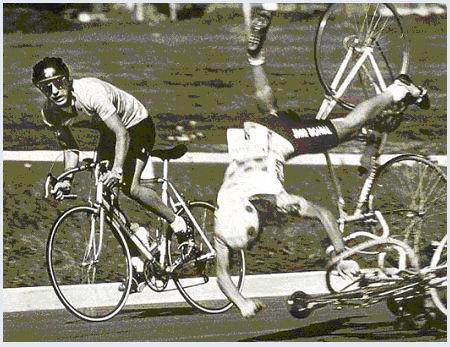
|
Weber said that:
a collision of cyclists may be compared to a natural event. their attempt to avoid hitting each other following the collision, would constitute social action |
Action Frame of Reference
Talcott Parsons
began his theory
(1937) with the "Action Frame of Reference", a development of
the "Voluntaristic Theory of Action" that he saw as developing in social
theory. He then moved on
(1951)
to analyse of
social systems in terms of the action frame of reference.
At some time in 1950, Parsons and eight other
USA Social Theorists reached agreement on a
General Statement respecting concepts for a
"Theory of Action". They wrote that "In accordance with already widespread
usage, we shall call these concepts the frame of reference of the theory
of action"
| See Habermas on Communicative Action |
| Actor | See both action and role |
Someone who acts - that is does things with intent, meaningfully, as distinct from behaving without meaning. (See action).
Another word for actor, in this sense, is agent: Someone who does something.
How does action relate to
social structure? Think of action and you probably think of
people freely choosing to do things. How does that happen if the structure
of society is deciding what they do? Relating action to structure is what
is meant by the "problem of
agency and structure".
Actor can also mean role-playing - as actors do on a stage.
Agency as autonomous self-determined action:
Agency can mean the ability of an individual or group to act for herself, himself or itself. If not allowed to do so s/he/it is lacking in agency, or denied agency. Someone who can only act if s/he does what someone else says lacks agency.
Arguing that someone is not the real author of a work s/he wrote because s/he was influenced, taught, or helped by someone else is to deny their agency.
I base the above on the geekfeminisim wikia.
Agency as autonomy, plus more:
Agency as autonomy seems to fit the meaning in the following quotations, but other features are added.
"The exercise of human agency is about intentional action, exercising choice, making a difference and monitoring effects" Chris Watkins, 2005, "Classrooms as learning communities" p. 47, basing himself on Dietz and Burns (below)
"effective, intentional, unconstrained and reflexive action by individual or collective actors" (Dietz and Burns 1992: Abstract)
"invitation into participatory spaces is not enough for individuals to act with agency to influence and claim their rights to quality health care" (Renedo and Marston 6.2015 p.491)
Adaptation - Adjustment - Accommodation - Assimilation
To adapt is to alter to make fit for use. To adjust is to arrange things so
that they fit together or harmonise. Accommodation is (usually) human
beings adapting themselves to one another's needs. Assimilation is to take
in or absorb something.
Adaptation in biology and ecology
Robert Park says that The term adaptation came into vogue with Darwin's theory of the origin of the species by natural selection. As this suggests, adaptation is a term relating to the way an organism alters itself in relation to its environment. [See Introduction to Darwin's Origin of Species]
Jean Piaget applies this to the psychological development of human beings.
Piaget argues that we have mental structures that adapt (alter) in response to challenges the environment presents to our activities. Schema are elements of these structures. They are variable ways of acting which have a common feature. For example, we grasp different objects with different muscle movements, but there is an overall plan of acting.
The adaptation of a mental structure is a two-sided process. The two sides are accommodation and assimilation. In accommodation, the existing schema is altered in order to adapt to a new element in the environment. In assimilation, the new object of experience is incorporated into the existing schema.
The two processes take place together. An example is a child who can grasp large objects, but not small ones. To learn to grasp small ones, s/he has to attempt to grasp them: This is attempting to assimilate the small object into the existing grasping technique. In doing so, however, the technique will need to be modified: That is, it will accommodate to the new task.
Park and Burgess
Park and Burgess also make use of the three concepts of adaptation,
accommodation and assimilation. (See
Ecology). They do so in a different way to
Piaget. They use adaptation for the unconscious biological
alteration of organisms in relationship to one another, and
accommodation
for the conscious alteration of human beings in realtion to one another.
Assimilation is a more thoroughgoing form of accommodation. Through
intimate
relationship, people come
"into possession of a common experience and a common tradition"
Talcott Parsons' Adaptation
Adaptation (he maybe thinking of the adaptation of the society
to its
environment) is one of the
four basic needs that
Parsons says that all
Social Systems
have. All societies need a
mechanism to allocate resources. In the social system as a
whole, this is
done by the
economy.
Parsons also says that adaptation is a specialist function of the
organism
In Hegel's analysis
of
society, the economy is rooted in
civil society, which includes
the judicial
and police system that make transactions possible.
See also
Political Economy
Erving Goffman's two types of adjustment
Goffman defines two types of adjustment of people to
institutions. Primary adjustments are ones that harmonise the
individual with the institution on the way that is intended. Secondary
adjustments are habitual ways in which people get round the
organisation's assumptions about what they should do and be. The totality
of such secondary adjustments is an organisation's
underlife
In 1599,
William Shakespeare (aged about 37), defined the seven ages of
man as roles he plays. This could be regarded as a
sociological view of age - One that inter-relates the
biological and psychological. In
1964,
New Society used the
Seven Ages concept for a series of articles surveying "the development of
man - his body,
his personality, his
abilities.
Shakespeare wrote:
All the world's a stage,
age one: infant The "nurse" in Shakespeare's Romeo and Juliet is a
wet-nurse employed to suckle Juliet who continues to care for her after she
has finished
breast-feeding.
Understanding other people's speech develops gradually from about six
months.
Producing one's own words begins about age one, and then develops rapidly.
There is a "vocabulary explosion" in the middle of the second year.
"Grammatical rules and word combinations appear at about age two. Mastery
of vocabulary and grammar continue gradually through the preschool and
school years."
(Wikipedia) - (See
Piaget
and representational thought)
age two: school boy If Shakespeare attended the "King's New Schoool"
in Stratford, he would have done so between the ages of seven and fourteen.
Child labour:
A British Act of 1842 stopped children under ten years old
working underground in coalmines. A
series of Acts between 1870 and 1918 made education free and
compulsory for children from five years old to ten, then to eleven, then to
fourteen. Education provided for the "childhood" period is known as
elementary or primary.
age three:
lover. Shakespeare married Anne Hathaway in November
1582, when he was 18 years old and Anne 26 years old. She was already
pregnant with their first child.
Adolescence just means growing up. It is the passage from childhood
to adulthood. In many cultures, it is marked by social "rites"
(ceremonies)
"of passage". Examples are the Bat Mitzvah (aged 12) of Jewish
girls and Bar Mitzvah (aged 13) of Jewish boys. Before these ceremonies,
the parents are responsible for the morals of the child, through the
ceremonies, the child assumes responsibility for her or his life in the
community. Puberty is the period during which adolescents reach
sexual maturity.
age four: soldier
age five: justice
age six: pantaloon a rich, greedy, rather foolish, old man in
Italian comedy.
The menopause typically occurs in women during their late 40s or
early 50s. Commonly called the change of life. During this the
menstrual cycle ceases and the woman is no longer able to conceive babies.
The social and psychological component of the "change of life" is
demonstrated by the idea of the "male menopause". Although there is no
corresponding biological change in men, people speak of a corresponding
stage in a man's life marked by a crisis of identity and confidence.
age seven: sans everything Shakespeare died on 23.4.1616, just
before his 54th birthday. Anne died 6.8.1623, aged 67 years. Some people
have calculated the average lifespan of an adult male in Elizabethan
England as 47 years,
(Wikipedia)
Psalm 90 in the
1611
Bible calculates "the days of our years" as seveny-five, or
eighty if we are strong
Making the Case for the Social Sciences No. 2 - Ageing
20.7.2010
"adaptation is applied to organic modifications which are transmitted
biologically; while accommodation is used with reference to changes in
habit, which are transmitted, or may be transmitted, sociologically, that
is, in the form of social tradition"
For
Habermas, this is part of the
system integration
Economy and Civil Society
Age
See
subject index
And all the men and women merely players,
They have their exits and entrances,
And one man in his time plays many parts,
His acts being seven ages. At first the
infant,
Mewling and puking in the nurse's arms.
Then, the whining
schoolboy
with his satchel
And shining morning face, creeping like snail
Unwillingly to school. And then the
lover,
Sighing like furnace, with a woeful ballad
Made to his mistress' eyebrow. Then a
soldier,
Full of strange oaths, and bearded like the pard,
Jealous in honour, sudden, and quick in quarrel,
Seeking the bubble reputation
Even in the cannon's mouth. And then the
justice
In fair round belly, with good capon lin'd,
With eyes severe, and beard of formal cut,
Full of wise saws, and modern instances,
And so he plays his part. The
sixth age shifts
Into the lean and slipper'd pantaloon,
With spectacles on nose, and pouch on side,
His
youthful hose well sav'd, a world too wide,
For his shrunk shank, and his big manly voice,
Turning again towards childish treble, pipes
And whistles in his sound.
Last scene of all,
That ends this strange eventful history,
Is second childishness and mere oblivion,
Sans teeth, sans eyes, sans taste, sans everything.
See
Childhood and
Childabuse
New Society 1964: Infancy: 0 to 5
New Society 1964:
Childhood: 6 to 12
The term youth (the time when one is
young) is often used particulary for the period between childhood and full
adulthood.
New Society 1964: Adolescence: 12 to 18
Education provided for the adolescence period is known as secondary
Under the UK's
1944 Education Act, secondary education was compulsory
and free for (almost) all children from eleven years to
fifteen years (from 1947) and then 16 (from 1973). The stage beyond
secondary education is not compulsory. It can be referred to as
tertiary (third level)
New Society 1964: Young Adult: 18 to 30
University level education ("higher" education in the UK) generally
begins at 18. It can begin earlier or at any later age
New Society 1964: Prime of Life: 30 to 42
New Society 1964: Middle Age: 42 to 60
New Society 1964: Old Age: Beyond 60
UK statistics
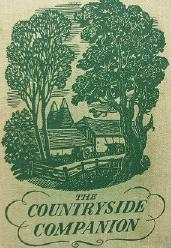
|
Country is a
Raymond Williams
keyword. He points out that it has two broad meanings. I can
speak of "my country", meaning the land or
nation I belong to. But I can also speak of the country as rural
rather than
urban areas, as in "town and country". It is, perhaps, to avoid
confusion that we now use the word countryside for rural areas.
Ager is French for field. So the word argiculture means cultivating fields. Agriculture is farming, including growing crops and rearing animals for food. Rural comes from the Latin word ruralis which means of the countryside. |
| Sociologia Ruralis is the journal the European Society for Rural Sociology. The society is based in Holland. It was founded in 1957 and its journal started in 1960. website |
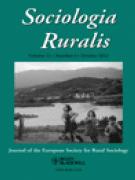
|
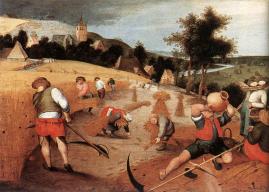
|
Once upon a time, almost everywhere was countryside. Today, most
of the world is still countryside, but about half of the world's population
lives in urban areas. That half still lives on the food which is mainly
produced in the countryside.
The village is part of the countryside. A town may be a market town that serves the countrside. Modern cities have almost lost sight of the countrsyside. |
Alienate - Alienation -
Estrange - Estrangement
These words mean to make someone or something a
stranger or foreigner to
us. The meaning can stretch from stripping someone of
citizenship and
making him or her an outcast to just selling something. If you sell your
mobile phone, it is no longer yours. You have alienated it. Another meaning
of alienation is to be separated from one's sane being, or to be mad.
See
essay on Rousseau. Can we sell ourselves? Can we become slaves
voluntarily? In this essay, Mohammed Elsadek argues that alienation is a
central concept in the thought of
Jean Jaques
Rousseau. We could think of it as providing the movement
(dynamics) to his social theory. Humans are alienated from society and the
movement comes from our efforts to restore our humanity.
See
essay on Marx and
Engels - Estrangement or alienation. What do we lose of
ourselves when we sell our labour? Following
Hegel (who followed
Kant, who followed
Rousseau), alienation or estrangement is a central concept of the work of
Marx and Engels in the
1840s. Scholars have different views of its later importance,
What are we alienated from? According to Marx
A similar idea was expressed by Elsie Davenport in 1948
See William Morris in
News from Nowhere in 1890
See
Thinking Sociologically the Bauman
and May way
Egoism is the older word - Although it only dates back to the late
eighteenth century. It is from ego, the Latin for I. It means the same as
when people say "me - me - me - me - me"! It is about selfishness or
following self interest in opposition to other peoples interests.
Social theories developed from
Hobbes are egoistic. They assume that following individual self
interest is natural and that what needs to be explained is how self
interest can be restrained enough to make society possible. So,
Herbert Spencer, who writes in the tradition of Hobbes, says
Altruism is a word formed by
Auguste Comte in 1851, to talk about benevolent, in contrast to
selfish inclinations.
Two great schools of sociology, one built on
Hobbes and the other on
Rousseau, can be distinguished by whether they consider altruism
a real,
solid aspect of human nature. Following the tradition of Rousseau,
Emile
Durkheim wrote:
"the productive life is the life of the species. It is life-
engendering life. The whole character of a species, its species- character,
is contained in the character of its life activity; and free, conscious
activity is man's species-character."
(1844 manuscripts)
"Man is by nature a creative artist... a community deprived of
the opportunity to create with hands as well as with brain, becomes ill-
balanced and ultimately unsound... The machine... must produce things in
large quantities, and all to the same pattern... while it might be
impractical to design and make one's own car... when you have woven your
own cushion square... it will possess an individual character which no
machine could produce" (Davenport 1948)
"
Altruism - Egoism
"The promptings of egoism are duly restrained by regard for
others." (quoted in the Shorter Oxford Dictionary)
"altruism is not destined to become, as Spencer desires, a sort of
agreeable ornament to social life, but it will forever be its fundamental
basis"
(Durkheim 1893 p.228)
Anarchy
From Greek for without a chief.
As a political fear, anarchy is chaos. Thomas Carlyle wrote:
"Without sovereigns, true sovereigns, temporal and spiritual, I see nothing possible but an anarchy; the hatefullest of things."
But there is also a political theory that sets it out as an ideal. Geoffrey Keith Roberts in his book on Anarchy defines it as:
"The organisation of society on the basis of voluntary cooperation, and especially without the agency of political institutions, i.e. the state."
The quotations are from the Oxford English Dictionary
Animism
"The theory which endows the phenomenon of nature with personal life might
perhaps conveniently be called 'animism'"
(E.B. Tylor
"Religion of Savages" 1866)
Art -
skill - craft - a
trade
(occupation)
- artist -
artiste - artisan

|
Art is
a Raymond Williams
keyword. In practice, the use of words such as art, artisan, and
trade tends to be related to
class as much as to
creativity.
In its original meaning, art refers to any kind of skill.
1768 See
Royal Academy of Arts
1887 Arts and Crafts Exhibition Society, formed in London
1890 William Morris
News from Nowhere -
"I hear that you are a weaver I should like to ask you something about that
craft,"
1893 artisan,
plain, and superior household cookery
["Ladies desirous...]
|
|
1900 Dictionary: artisan and artist and
artiste all come from the same Latin root but
artisan means "one skilled in any art or trade; a handicraftsman; a mechanic" artist means "one skilled in art or profession, especially, one who professes and practices one of the fine arts, as painting, sculpture, engraving, and architecture; specifically and most frequently, a painter. artiste (a French word) means "one who is particularly skilful in any art, as a public singer, an opera dancer, and even a cook". craft (an old English word) means cunning, art or skill [generally] and [specifically] dexterity in a particular manual occupation. A craftsman is an artificer, a mechanic, one skilled in a manual occupation. 1911 Enfield Trade School 1931 Hornsey School of Arts and Crafts
|
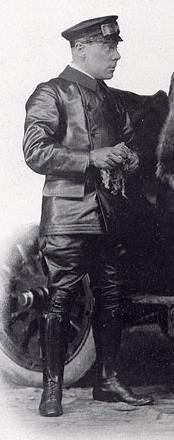
|
1943 Artistes at Enfield (drama and singing)
1948 Crafts Centre of Great Britain
Articulate
To articulate is to put different articles (items) together in a form.
Articulate
speech is a good formation of words.
To re-articulate is to put different articles (items) together in a
different form. The items are rearranged.
Aryan
In the wake of
national socialism, aryan is a highly contentious term.
Following the Wikipedia link above and examining the struggle over the term
there (see discussion page, for example) may indicate how contentious it
is.
I have included Walter Theimer's, critical,
1939 dictionary entry on Aryans in the file on National
Socialism
Max Müller,
in 1861, speaks occasionally of an Aryan race (pages 213, 245,
246, 256). More often, he uses terms like the "Aryan family of
speech". He made clear
in 1888 that his use of Aryan was as a cultural rather than a
biological concept:
"Aryas are those who speak Aryan languages, whatever their
colour, whatever their blood. In calling them Aryas we predicate nothing of
them except that the grammar of their language is Aryan"
| Assimilation | See also Adaptation and Accommodation |
Assimilation is to take in or absorb something. Assimilate means to make similar.
Used of a living organism - it means to take in external material and convert it into fluids and tissues identical with the organism's own fluids and tissues. This is what we do when we eat and drink, and also when we breath.
In plants, the process of photosynthesis assimilates carbon dioxide from the air and, using sunlight, converts it into the carbon compounds (sugars, for example) that the plant is made of. Animals assimilate these compounds when they eat the plants and convert them into animal tissues. In this way, the carbon compounds of all living things are created.
The word is also used for absorbing, and making our's own, ideas and influences. We assimilate ideas when we make them part of our own way of thinking or acting. We assimilate information when we take it in and understand it fully.
In relation to migration, assimilation is "the process through which an ethnic minority takes on the values, norms, and the ways of behaving of the dominant, mainstream group and is accepted by the latter as a full member of their society" (Fulcher and Scott 2007, p.857).
| Authority |
See also legitimacy
authoritarian and authoritarianism |
The Plain English Dictionary says that "If someone has authority over a group of people, they have the legal right or power to tell them what to do"
Authority is a special kind of power. It is not just force. The word's origins are linked to ideas of God as the "author" of our being.
There is something magical about authority and many social theorists have discussed its special qualities as a key to understanding society. (See, for example, Rousseau, Weber, Freud and Scruton)

|
Authority is the right to enforce obediance. A crook
with a gun may
have the power to force you to obey, but does not have the
authority to do
so.
Hobbes argued that submitting to force can create a duty to obey, but Rousseau replied:
|
We tend to say that a government has authority if is legitimate.. This is the way that Max Weber defines authority as a type of power. He says:
"the legitimate exercise of imperative control... is.. authority"Authority and arbitrary power
Authority can be contrasted with reason. This appears to be what Mary Wollstonecraft does in Vindication of the Rights of Woman, chapter one, where she is discussing "The Rights and Involved Duties of Mankind". She says
"any ... maxim deduced from simple reason, raises an outcry - the Church or the State is in danger, if faith in the wisdom of antiquity is not implicit; and they who ... dare to attack human authority, are reviled as despisers of God and enemies of man"
Here, authority is the people in power, and it is associated with what Max Weber called "traditional authority" and Wollstonecraft calls "the wisdom of antiquity".
Wollstonecraft is supporting what we might call the "authority of reason". She associates (traditional or established) authority with arbitrary power. Arbitrary power is not governed by reason (See absolutism). She associates reason with the power of the people, when informed by the free discussion of ideas, and says:
"when once the public opinion preponderates, through the exertion of reason, the overthrow of arbitrary power is not very distant"
Authority is an old
English word, coming from French and Latin after 1066 (the Norman
conquest). Authoritarian (late 19th century) and authoritarianism are
relatively new words. Authoritarian means in favour of obedience - in
politics, the family, or wherever. An authoritarian style of government is
called authoritarianism.
Here is the definition of Authoritarian from a 1939 Political Dictionary
(English). In 1939, Italy (Fascist) and Germany (Nazi) were proud to be
authoritarian:
Authoritarian and authoritarianism
"Authoritarian: a term denoting a more or less
dictatorial system of government, as opposed to the
democratic system based on the people's sovereignty. Adherents
of authoritarianism criticise the alleged disunion and inefficiency of the
democratic system, and praise the alleged advantages of a strong State
authority. The question where the bearers of this authority derive it from
is left open."
| Autonomous - Autonomy | See also autonomous learner |
Autonomous means self-
governing; acting independently
or having the
freedom to do so. It is self determination as opposed to being
controlled by others. Instead of being
dependent, as
a baby is, we are self dependent.
Auto is Greek for self. Hetero is Greek for other. Opposites of autonomous are: heteronomous (subject to another's law or rule) and dependent.
[Heteronomy usually means other-directed, but it can also mean that more than one law or priciple is operating.]
Hetero and homo
Homos is Greek for same, in contrast with
hetero for other. A
homogeneous
sample consists
of items of the same kind.
If things are homologous they agree or harmonise (have the same logus). In
a
prize winning passage, Judith Butler wrote about
Average or normal
person
The idea of an average or normal person is an historical
construction. This is reflected in the
history of the word "normal". An important stage in the
development of the concept was the idea of
"the average man" (l'homme moyen) put forward in
the work of Quetelet (1835). But what we mean by normal or
average can mean different things. See, for example, the
different mathematical meanings for average.
Normal curve
In
1835
Adolphe Quetelet
published his conception of the qualities of an
average person as the
central values of measurements grouped in "curve of
possibility" - which we
now call a
"normal curve".
"a structuralist account in which capital is understood to
structure social relations in relatively homologous ways"
Average and
Normal
Ordinary Guy lyrics -
Ordinary Guy: A Professor, music and poverty scholar with a "degree in
streetology" Joe Bataan
"I don't drive a beautiful car
And I don't own an elegant home
I don't have thousands to spend
Or a seaside cottage for the weekend
I'm just an ordinary guy"
| This bell shaped picture drawn by Quetelet illustrates a distribution according to laws of probability. |

|
Quetelet showed that the distribution of naturally occurring features, such as the heights of adult men, approximated to the same shape. So, there would be very few very short men (left), large numbers of medium height men (around the central axis) and very few very tall men.
Hidden in this picture was the possibility of measuring normality and abnormality (deviance) "scientifically".

|
The normal curve is also called the bell curve |
See
The Bell Curve: Intelligence
and class structure in American life -
The statistics this uses were cricised by Donald D. Dorfman in the
May 1995 issue of Contemporary
Psychology
See
Marx and Engels: Scientific Socialism
section on
Marx's
economics
A base is something on which a thing stands or by which it is supported.
This might be the foundations of a building. The word superstructure first
applied to the part of the building above the foundations.
Henri Saint Simon's theory of history includes the idea that,
ideally, the ideas of a society will be supported by its social structure.
When, due to the developement of new classes, the social structure of
society alters, the ideas of the society have to alter to come into line
with the new social structure.
Marx, in 1859, described the
"economic structure of society" as its
"real
foundation" and argued that
"a legal and political superstructure" "arises" on these
foundations. These correspond to
"definite forms of social consciousness".
If something belongs to you, it is your
property and you own it. If someone else owns you and you belong
to him or her, in this sense, you are a
slave.
Rousseau argued
that owning people as property is
unnatural because it contradicts the second sense of belonging,
which is the sese that naturally makes us
human.
In the second sense, if you belong to a group you are a member of it. To
belong is to be part of. In this sense,
Vanessa May
argues that belonging is the basis of how we relate to the
world.
Base and
Superstructure
Belong - belonging - belongings
Include -
inclusion
Detach -
detached
| Kofi Annan is reported to have said that although we have different religions, languages, and skins, we all belong to the one human race. He added that "we all share the same basic values". |
Belonging includes our relationships to other people, to cultures and to the material world of time and space. It has many dimensions. I belong to my family and my friendships are an essential part of my belonging. I belong to the multi-cultural society of Hackney, where I live, but I am also part of the English speaking world and a European. As Kofi Annan suggests, I also identify with the whole of humanity. Like many others, I feel identity with all that exists.
But not everyone wants me to be part of their group. I may want to be a member, but not be accepted.
To include is to count as part of. To exclude is to count as not part of.
To be part of a group you may need to be recognised or acknowledged as such. To say "I question his membership" is to suggest he is not really part of the group and that he should be excluded. [See Vanessa May ]
To attach is to join. To detach is to separate.
In the late 1950s and early 1960s "something called 'detached youth work' appeared in Britain". Mark K. Smith in The Encyclopedia of Informal Education
Binary
In twos: See binary
arithmatic -
computers think in twos
Binary Opposition - opposition binaire
Bio-
From Greek word for life. It has two distinct meanings in
Biography is a life story
(narrative).
Bio
meaning life and graphy meaning
writing. Auto meaning self makes
autobiography the story of one's own life.
Sigmund Freud used the technique of psychoanalysis to explore
the hidden biographies of his patients. From this he developed theories of
how the individual is integrated into culture.
Freud's theories were
incorporated into main-stream USA sociology by
Talcott Parsons.
Parsons
argued
argued that Freud and Durkheim were converging towards similar
positions with respect to the relationship of individual biography, society
and culture.
(Parsons 2.1952)
He
added that a similar path was taken in the work of
George Herbert Mead.
(Parsons 1964 p.2)
In 1959, C. Wright Mills wrote of
"the interplay .. of biography and
history", arguing that a
"sociological imagination enables its possessor to
understand the larger historical scene in terms of its meaning for the
inner life and external career of a variety of individuals" and
referring to
"social science as the study of biography, of history, and of the problems
of their intersection within social structure."
In 1972,
Peter Berger and Brigitte Berger structured a textbook for
introductory sociology around what they called a "biographical
approach". this had chapters on becoming a member of society
(socialisation), the family, the community, education, youth, work and
leisure, old age, illness and death.
Personal narrative in research
Phenomenological approaches to sociology have led some social
theorists to
construct their empirical research around autobiographical or biographical
narratives. A recent example of this is
David Webb's 2010 Thinking about Suicide: Contemplating and
comprehending the urge to die, based around his own life story and
supported (in his original thesis) by a second volume that places that in
its theoretical context.
Writing about your own experiences and relating them to what happens to
other people seems such a natural thing to do that it can come as a shock
to find out that what you are doing is autoethnography. This is what
happened to
Sarah Carr
In plain English, autoethnography means writing about things that have
happened to you and relating them to things that happen to other people
and/or society.
Elizabeth Ettorre defines autoethnography as "a study of culture
that involves the self". She argues that its strength is that it
"locates [the] research experience in the changing ebb of emotional life"
Carolyn
Ellis, Tony Adams and Arthur Bochner say
Elizabeth Ettorre method is to make transcriptions of narratives and
research notes, but
to "write from the heart, bring the first person in my work and merge art
and science'" She recalls the feelings that she had in relation to her
interviews, "processing data through me". her write-up involves both
"emotional recall" and "sociological introspection". Sociological
introspection appears to mean that she relates what she is thinking in
relation to the interview to sociological theory.
Biology (the 'science of
life') is the study of
living organisms. See also
body.
Term came into use in the early 19th century. "The science of life, dealing
with the morphology [form], physiology [functioning], anatomy [structure],
behaviour, origin, and
distribution of living organisms" (Oxford English Dictionary)
Botany deals with plant life and zoology with animal life.
Talcott Parsons
distinguishes
biological systems from
personality -
social - and from
cultural systems. In this sense, the biological relates to the
physical organism and its processes as distinct from the
processes relating to the structure and organisation of the personality, of
social inter-relations and of culture and language.
Biological
identity
See the Science Museum's online exhibits
"Who am I?", which are divided into
body,
brain and
genes
This word is used by
Michel Foucault. It includes forms of
knowledge -
(discourses). For example, medical theories about how women
should give birth to their babies are a form of
power. This kind of knowledge shapes what women do with their
bodies.
Birth - Conception - Generation
Pregnant is before birth (as in the picture left)
Birth is the coming of a new life from the body of a mother (human or
animal) who bears (carries) it.
To generate is to beget or reproduce.
Labour is the mother of all
work
natal: related to birth - prenatal is before birth -
perinatal is before and after (around about) birth -
postnatal is after birth
There are perspectives in
mythology, religion and social theory that understand the world as the
birth (generation) of
form from formlessness...
Official statistics are
generated (produced - socially constructed) by agencies such as
government departments...
The
material frame of
humans or
animals. The word derived, at one stage,
from the word for corpse. It is the flesh as distinct from the
spirit.
René Descartes argued that
the body is a machine which, in humans, but not animals, is
directed by the
soul.
A
biological analysis of the
body as a
machine only gives us one view of it.
(See Foucault)
Human bodies are also shaped and
organised by society. This is sometimes expressed by saying bodies are
socially
inscribed.
Michel Foucault says
Associated concepts:
embodiment -
embodied self -
The word physical is often used to distinguish things related to the
body from things related to
mental or
psychological activities. Carnal comes from flesh
and means bodily. Carnal knowledge is a phrase for
sexual intercourse.
Explained by Oby Barnes, May 2007 essay:
Body image is the picture of my body that I have in my mind. It is
different from the body that I actually have. My body image may be fatter
than I really am. In other words, I imagine myself to be a bit on the fat
side. I may also imagine myself to have smaller breasts than I have.
Perhaps I see a man with a floppy chest and think "he has bigger breasts
than me". If I compared, I would see that I have breasts and he has just
got a floppy chest, but my feelings give me a picture of my body that is
different than the real body. My body image is not the same as my real
body. It is not the same as the image I have in my photograph album. The
image of my body that I see in the mirror is somehow related to what I
imagine in my mind - But my mind's body image is what I have even when I am
not looking in the mirror, and it can be very different.
Quotation from Elizabeth Grosz used by Oby in illustration:
Body language is one of the
systems of
communication,
apart from
speech, that
humans use. It
is a language that does not distinguish us from other animals.
Most of it
consists of (unconscious) behaviour rather than (deliberate)
action.
Examples of body language are the way we sit and the gestures
we make. In a
group discussion, leaning forward may indicate an interest in
what is being
said. As with speech, body language can communicate false
messages. If
someone leans back and closes his eyes in order to
concentrate, other group
members can interpret it as lack of interest. Body language
can be brought
under the control of the conscious mind and used to improve
relations.
Smiling and nodding at a speaker can improve the speaker's
confidence by
suggesting support and interest from the listeners.
George Mead
called
body language a conversation in gestures:
Embodiment and Embodied self
In philosophy and social science, theories that relate human
thought and
identity to the
body are sometimes
called theories of embodiment or of the embodied
self.
Mead:
presents the
self and the mind as
"the importation of the conversation of
gestures into the conduct of the individual
organism".
A
gesture is an action of the body that is
cut short and becomes a
symbol.
Thus a
dog's snarl is the start of a bite that is not carried through.
Mead
calls the interchange of snarls and barks between dogs
a conversation.
In human beings, symbolic conversations of gestures become internalised so
that one human being repeats in his or her own head the responses of other
human beings to his or her own gestures. So, if we snarl, we also
understand how others will perceive our snarl and understand how and why
they respond.
Mead talks of the "individual
organism" 'taking' the
"organised attitudes"
of other people which are "called
out by its own
attitude, in the form of its gestures" . This
image of ourselves
as others
see us, is a pattern of their responses to our gestures which we have taken
inside us, or internalised.
This ability to think of ourselves as others may see us - to see and
respond to our own gestures as if we were someone else - is part of the
process whereby - in the course of
evolution -
mind,
self and
society develop
from the
interaction of animals.
The word bond is linked to ideas of being enslaved, to ideas of being tied
up, and to ideas of being emotionally attached.
A bond is "anything that binds, as a cord or band; link or
connection; an obligation or promise" (An 1887 Dictionary)
A bond is "a strong feeling of love or friendship which unites
people" ... " When someone is tied up you can call the rope they are tied
up with their bonds" (Plain English Dictionary 1996)
See solidarity
and slavery
"concepts... are defined not positively, in terms of their
content, but negatively by contrast with other items in the same system.
What characterizes each most exactly is being whatever the others are not"
See Wikipedia:
-
Binary opposition
See
archive of anonymous article on binary
opposition
See Tahira
Manji on binary opposition
Compulsory binary gender system: Children are divided into
boys and
girls at birth.
Judith Butler explains:
binary gender -
binary restrictions
-
binary system -
binary
opposition - binary gender system -
binary
options -
binary switch -
binary framework
-
Biography
Biography, autobiography and
narrative in sociology
See Subject Index
Biographical and narrative approaches and
weblinks
autoethnography
See ethnography and
autobiography
"autoethnography is an approach to research and writing that
seeks to describe and systematically analyse personal experience in order
to understand cultural experience"
Elizabeth Ettorre says autoethnography is part of the "turn" from modernism
to postmodernism and
contrasts "modernist observers" with "postmodernist witnesses". Post
modernism, she argues "moves away from universalistic conceptions of
respondents and embraces multiple, embodied forms of narrative
representations, replete with uncertainties."
Biology
See Natural World and
Natural Science.
Biopower
Of babies and
ideas
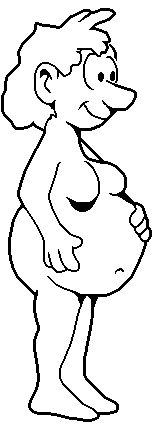
Conception is
getting pregnant
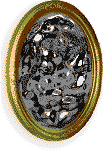
Body
See
body image -
body language
embodiment -
form -
organism
mind -
nature -
modesty -
sex
"the body is also directly involved in a
political field; power relations have an immediate hold upon it; they
invest it, mark it, train it, torture it, force it to carry out tasks, to
perform ceremonies, to emit signs."
See
Grosz -
habitus -
Mead -
Sawicki -
Body
Image
"The ego is like an internal screen on which the illuminated
images of the body's outer surface are projected. It is not a veridical
map, a photograph, but a representation of its degrees of erotogenicity, of
the varying intensities of libidinal investment in different body parts.
The ego is an image of the body's significance or meaning for the subject;
it is as much a function of fantasy and desire as of sensation and
perception.
(Grosz. E. 1992 pp 268-269)."
Body Language
"
Language is part of social behaviour. There are an indefinite number of
signs or symbols which may serve the purpose of what we term
language. We are
reading the meaning of the conduct of other people when, perhaps, they are
not aware of it. There is something that reveals to us what the purpose is
- just the glance of an eye, the attitude of the body which leads to the
response. The communication set up in this way between individuals may be
very perfect. Conversation in gestures may be carried on which cannot be
translated into articulate speech."
Changing meanings of embodiment:
Religious: to incarnate means to embody in flesh.
Metaphorical: to give form to an idea
Philosophy and social science: to emphasise the part the body plays in
shaping the mind
Wikipedia gives as one of the possible meanings of embodied or
embodiment: "embodied cognition (or the embodied mind thesis), a position
in cognitive science and the philosophy of mind emphasizing the role that
the body plays in shaping the mind"
Bond
See
nexus




 See
See


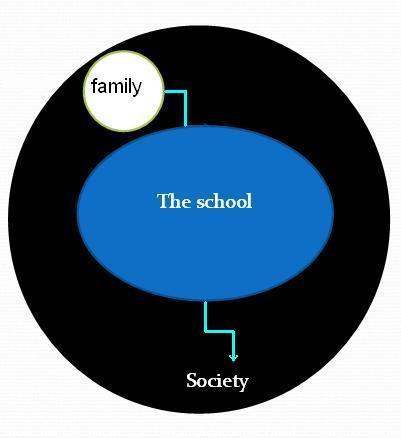

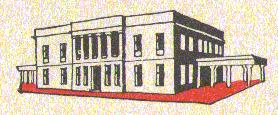
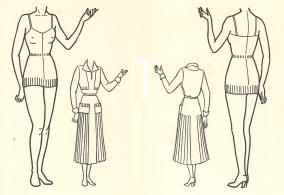
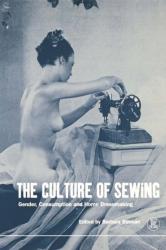
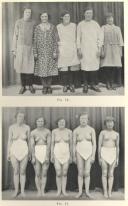


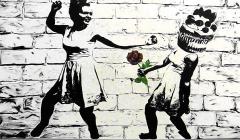
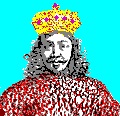
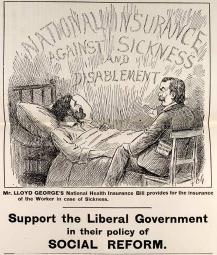
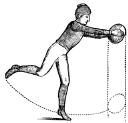
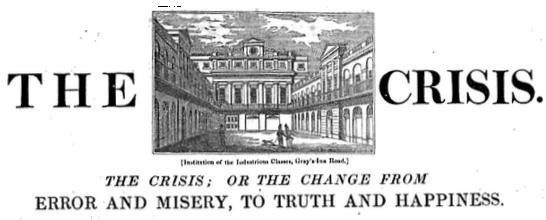
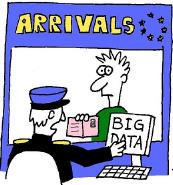

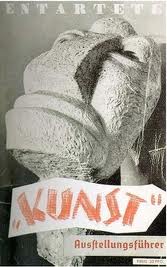
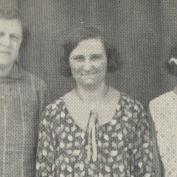
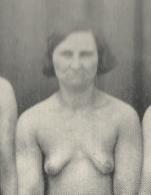



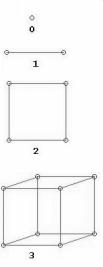
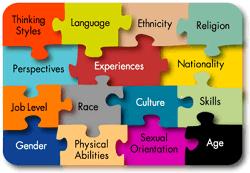

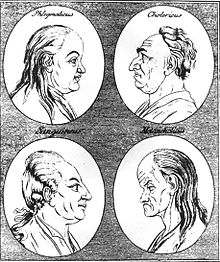





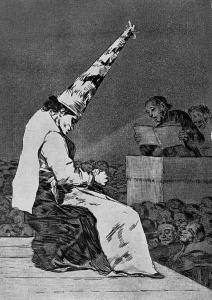



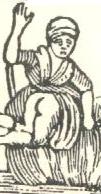
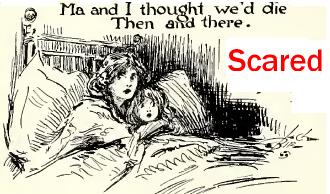

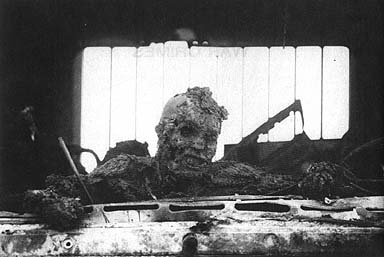

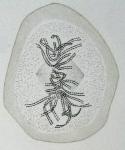

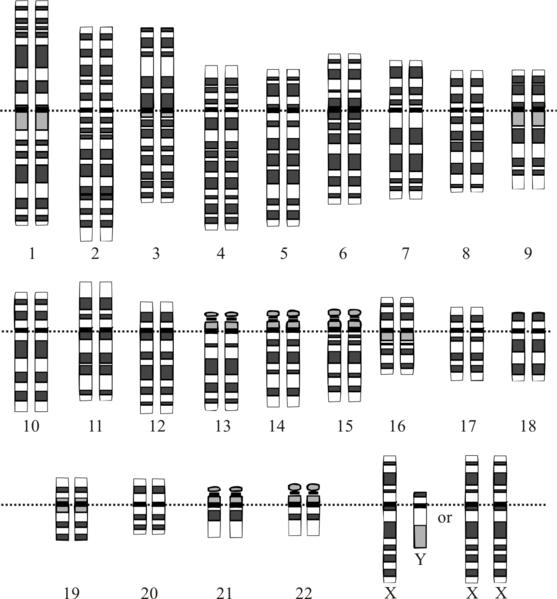



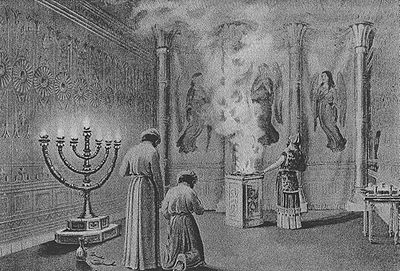


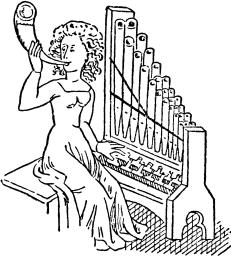
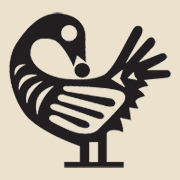


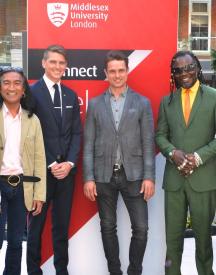


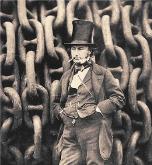
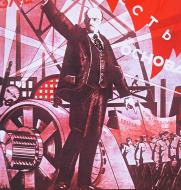
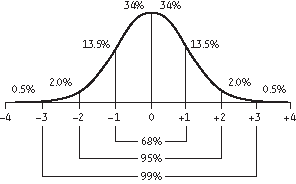

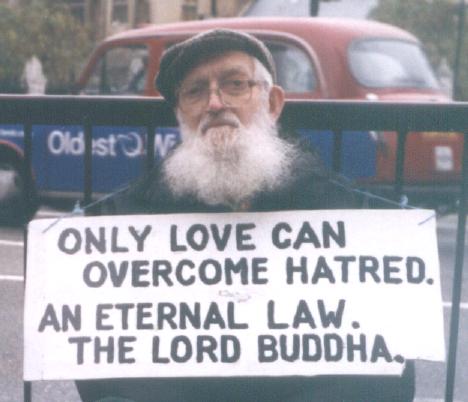
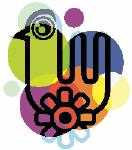

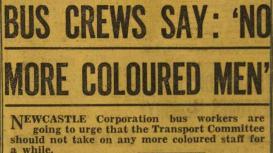
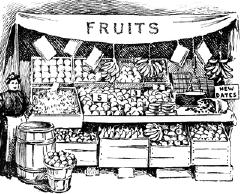
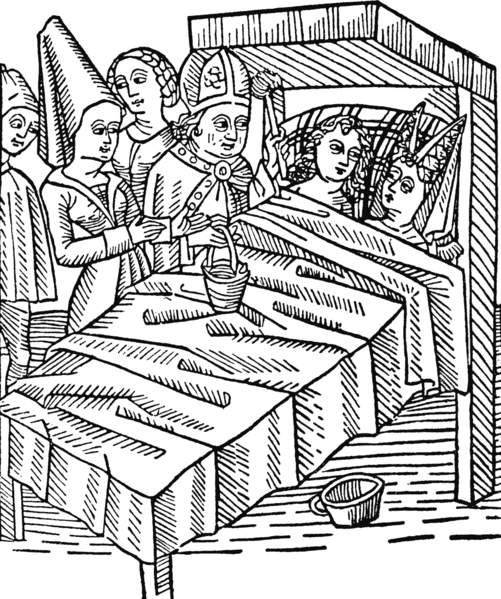
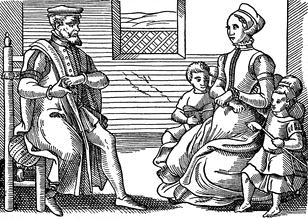
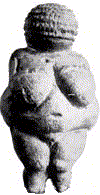

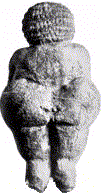
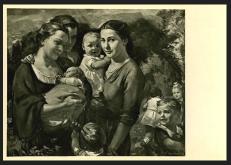
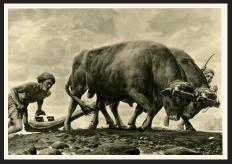

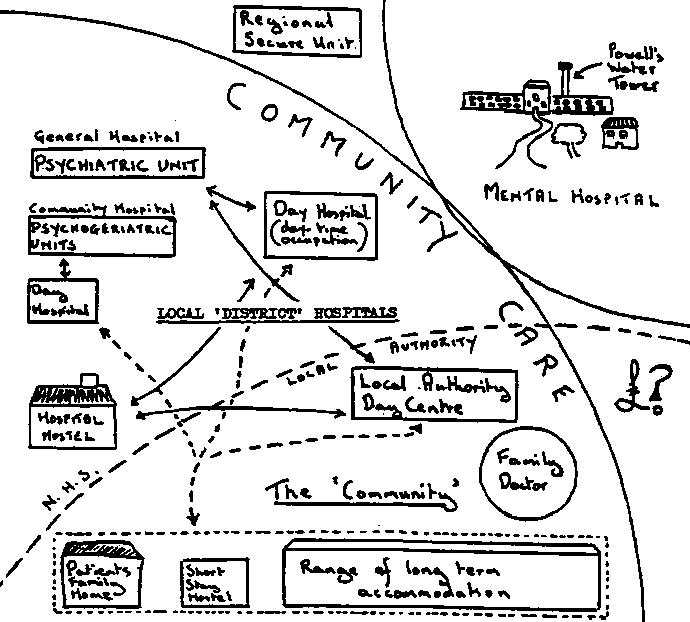

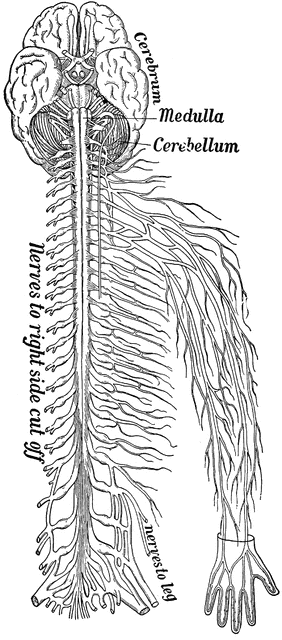
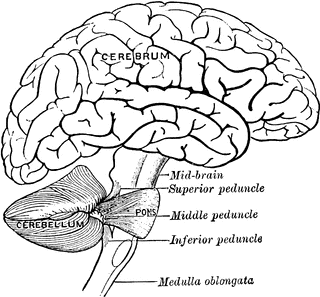

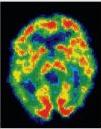
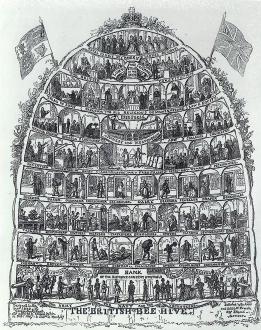
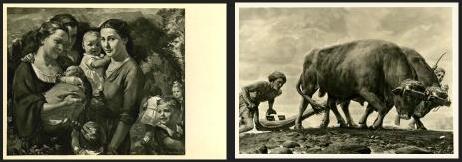

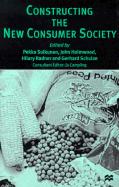
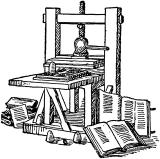



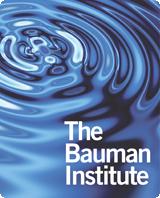

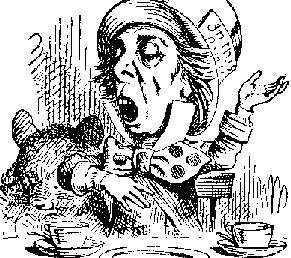




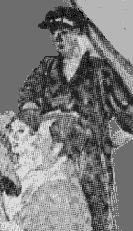

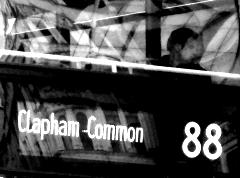
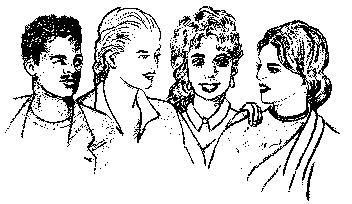
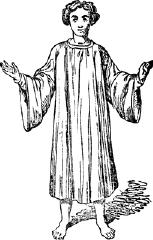

 The first stage
(
The first stage
(
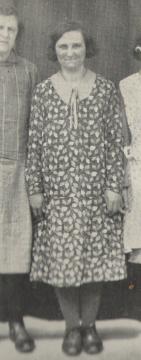

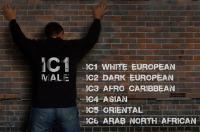
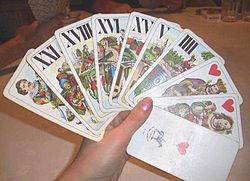

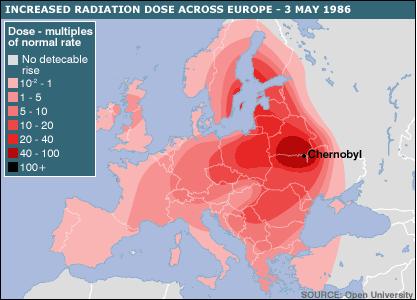
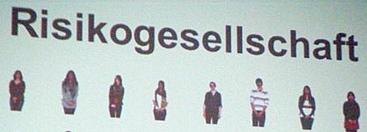
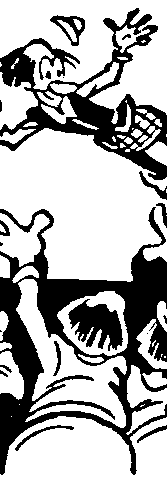



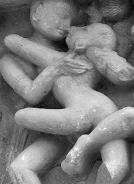

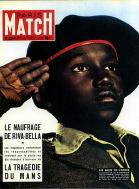
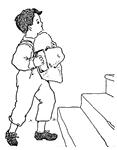
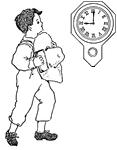
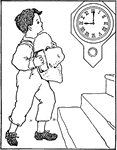


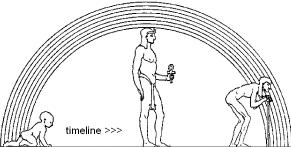
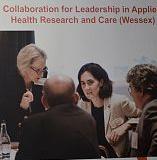

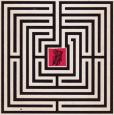


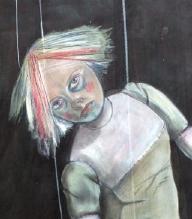

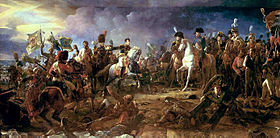

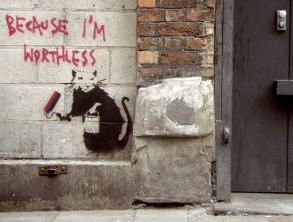



 Click coloured words to
go where you
want
Click coloured words to
go where you
want